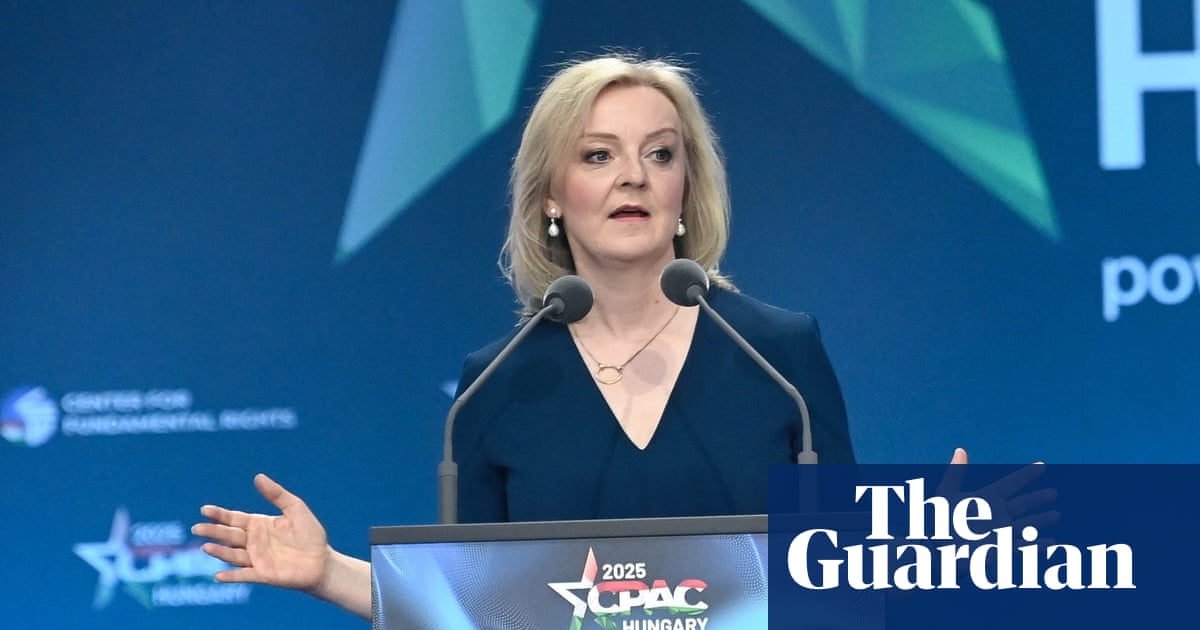Liz Truss has hit out at the Conservatives’ shadow chancellor after heformally disownedher hastily reversed 2022 mini-budget, saying it had damaged the party’s reputation for economic competence.
The former prime minister labelled Mel Stride a “creature of the system”, part of a failed fiscal orthodoxy which, she argued, would prevent theConservativestaking power again if left unchallenged.
Stride’s insistence at a speech in London that “never again” would the Conservatives offer up a largely unfunded package of tax cuts is the first time that the party hierarchy under its leader, Kemi Badenoch, has definitively cut itself off from Truss, who lasted just 49 days in power.
One Tory shadow minister said the impetus for Stride’s speech was in part to allow the Conservatives to attack Reform UK’slavish programme of tax cutsas being a potential re-run of the Truss debacle, as Keir Starmerdid last week.
In his speech, Stride labelled Reform’s economic policies “pure populism”. He added: “They would plough ahead with huge additional welfare spending, as well as tax cuts, with no plan for how to pay for any of it.”
AddressingTruss’s September 2022 fiscal plans, which involved about £45bn in unfunded tax cuts, he said: “For a few weeks, we put at risk the very stability which Conservatives had always said must be carefully protected.
“Back then mistakes were recognised and stability restored within weeks, with the full backing of our party. But the damage to our credibility is not so easily undone. That will take time. And it also requires contrition. So let me be clear: never again will the Conservative party undermine fiscal credibility by making promises we cannot afford.”
Truss released a statement that called Stride “one of the Conservative MPs who kowtowed to the failed Treasury orthodoxy and was set on undermining my plan for growth from the moment I beat his chosen candidate for the party leadership [Rishi Sunak]”.
She added: “UntilMel Strideadmits the economic failings of the last Conservative government, the British public will not trust the party with the reins of power again.”
In alater tweet, she again took aim personally at Stride, calling him “a creature of the system” who, when the pair were both Treasury ministers under Theresa May, “always went along with officials”.
In his speech, Stride also urged people to have patience with Badenoch’s leadership, saying: “She will get better through time at the media. She will get better through time at the dispatch box at PMQs.
Sign up toFirst Edition
Our morning email breaks down the key stories of the day, telling you what’s happening and why it matters
after newsletter promotion
“Just as Margaret Thatcher, when she became leader in ‘75, was often criticised for everything from her hair to the clothes she wore to the pitch of her voice to heaven knows what else, in the end she got it together and Kemi will do absolutely that.”
The Conservatives currently poll in third place behind Reform UK and Labour, with a YouGov poll published on Wednesday showing the Tories on 18%, just one point ahead of the Liberal Democrats.
Badenoch’s own favourability ratings have also fallen since she became party leader, reaching -27% according to a More in Common poll carried out last weekend.
